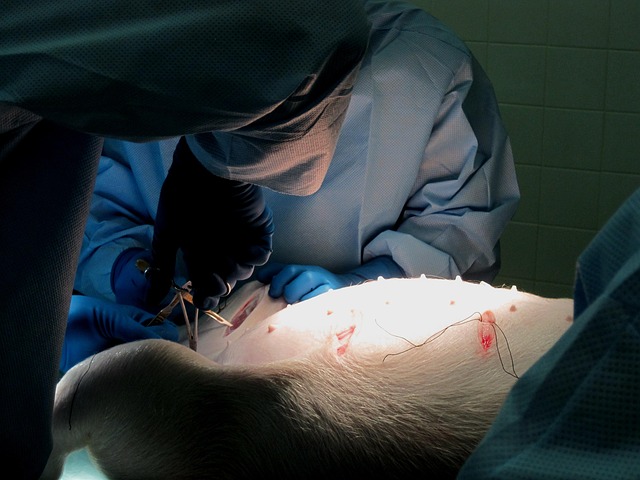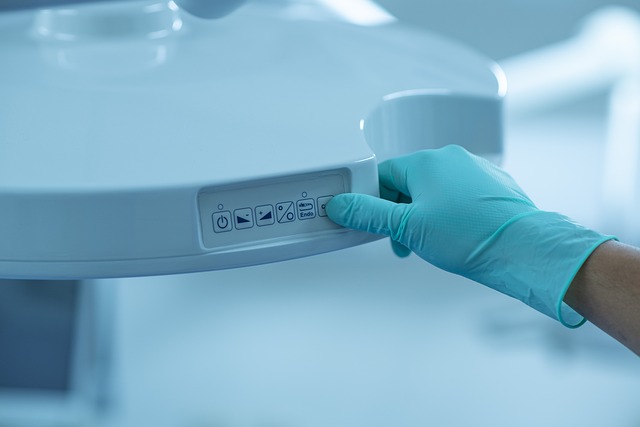In today's digital age, online reputation is crucial for surgeons, especially in competitive fields like plastic surgery. Positive engagement through active social media profiles and patient testimonials can attract new clients and enhance trust. Negative feedback or an outdated online image poses significant risks of damaging reputations. Strategic digital management, including personal branding and effective content creation on platforms like Instagram and YouTube, is essential for success in plastic surgery marketing. Prompt crisis communication and ethical conduct are key to managing one's reputation in this competitive landscape.
In today’s digital age, online reputation management is paramount for surgeons, especially in the competitive field of plastic surgery marketing. A surgeon’s reputation can significantly influence patient decisions, with reviews and testimonials playing a pivotal role. This article explores effective strategies to navigate this landscape, from leveraging social media platforms for engagement to building a robust personal brand. We delve into crisis communication techniques and ethical considerations, providing essential tools for surgeons to manage their online presence effectively.
Understanding the Importance of Online Reputation for Surgeons

In today’s digital era, surgeons must recognize the immense impact of online reputation on their careers, especially in the realm of plastic surgery marketing. Potential patients often conduct thorough searches before choosing a surgeon, and what they find can significantly influence their decisions. Online platforms have become a virtual landscape where word-of-mouth recommendations and patient reviews intertwine to create a complex tapestry of public perception. Every interaction, from social media posts to patient testimonials, contributes to shaping a surgeon’s reputation.
The stakes are high for surgeons who often rely on their online presence to attract new patients and maintain a successful practice. Positive reviews and an active, engaging social media profile can serve as powerful tools in plastic surgery marketing, fostering trust and highlighting expertise. Conversely, negative feedback or an outdated online image could deter prospective clients and irreparably damage a surgeon’s reputation. Understanding this dynamic is crucial for surgeons to actively manage their digital presence, ensuring it aligns with the highest standards of professionalism and patient care.
The Impact of Reviews and Testimonials on Patient Decisions

In today’s digital age, online reviews and testimonials have become powerful tools in the realm of plastic surgery marketing. Patients often turn to these sources when considering a surgeon, as they offer insights into the experiences of previous clients. A positive review can enhance a surgeon’s reputation, attracting new patients who are seeking reliable and skilled care. Conversely, negative feedback can significantly impact a practitioner’s standing, underscoring the importance of effective reputation management.
The impact of these reviews is profound, as potential patients often form their initial impressions based on what they read about a surgeon’s expertise and bedside manner. Well-crafted testimonials can showcase a surgeon’s skills, professionalism, and commitment to patient satisfaction, serving as a powerful referral mechanism. Conversely, constructive criticism can provide an opportunity for growth and improvement, but it must be handled delicately to maintain the surgeon’s credibility and assure prospective clients that they are making informed decisions.
Leveraging Social Media Platforms for Plastic Surgery Marketing

In today’s digital era, social media platforms have become a powerful tool for plastic surgery marketing. Surgeons can leverage these channels to showcase their expertise, engage with potential patients, and build a strong online reputation. Instagram, Facebook, and YouTube offer visual platforms where surgeons can display before-and-after photos, share patient testimonials, and provide educational content about various procedures. By consistently posting high-quality content, surgeons can attract new clients while solidifying their professional image.
Effective plastic surgery marketing on social media involves strategic planning and understanding the target audience. Surgeons should create a content calendar, ensuring regular updates that align with industry trends and patient interests. Engaging with followers through comments and messages fosters a sense of community and encourages potential patients to reach out for inquiries or consultations. Additionally, utilizing relevant hashtags allows surgeons to increase their online visibility, making it easier for prospective clients to discover their practice.
Building a Strong Personal Brand as a Surgeon

Building a strong personal brand is an integral part of reputation management for surgeons, especially in the competitive field of plastic surgery marketing. It involves creating a unique and recognizable identity that sets them apart from their peers. Surgeons should aim to establish themselves as thought leaders and experts in their niche, which can be achieved through various means. Engaging in continuous professional development, publishing peer-reviewed articles, and contributing to industry conferences are powerful ways to demonstrate expertise and foster recognition within the medical community and among potential patients.
Personal branding extends beyond professional accomplishments. Surgeons must also cultivate a positive public image by actively managing their online presence, including social media profiles and review sites. Sharing valuable content, such as educational blog posts or patient success stories, can attract and engage followers. Positive testimonials and satisfied patients are crucial assets; encouraging feedback and responding to reviews, both positive and negative, demonstrate transparency and a commitment to excellence, thereby strengthening one’s brand in the competitive plastic surgery marketing landscape.
Strategies for Managing Negative Feedback and Crisis Communication

In the highly competitive field of plastic surgery marketing, maintaining a positive reputation is paramount. When negative feedback arises, whether from an online review or a media crisis, surgeons must act swiftly and strategically. One effective approach is to foster an open dialogue with patients, encouraging them to share their experiences openly while also responding promptly to any concerns. Transparent communication can often defuse negative situations, demonstrating a commitment to patient satisfaction.
Surgeons should also develop a robust crisis communication plan. This involves identifying potential triggers for crises—such as complications from procedures or disputes over treatment plans—and establishing protocols for addressing them immediately. Consistent messaging that emphasizes safety, professionalism, and patient-centric care can help mitigate the impact of negative events on a surgeon’s reputation.
Ethical Considerations in Online Reputation Management for Medical Professionals

In the realm of plastic surgery marketing, online reputation management is a delicate dance between promoting services and upholding ethical standards. Medical professionals, especially surgeons, must navigate this landscape with caution due to the sensitive nature of their work and the profound impact reviews can have on patient trust and safety. Every online interaction, from social media posts to patient testimonials, carries weight in shaping public perception. Thus, any reputation management strategy must prioritize transparency, honesty, and respect for patient privacy.
Ethical considerations are paramount to ensure patients receive accurate information about procedures and potential outcomes without undue influence or false promises. Surgeons should foster a culture of authenticity, responding to reviews openly and addressing concerns directly. This approach not only promotes integrity but also helps build a reputation founded on trust, which is invaluable in the highly competitive plastic surgery marketing arena.
